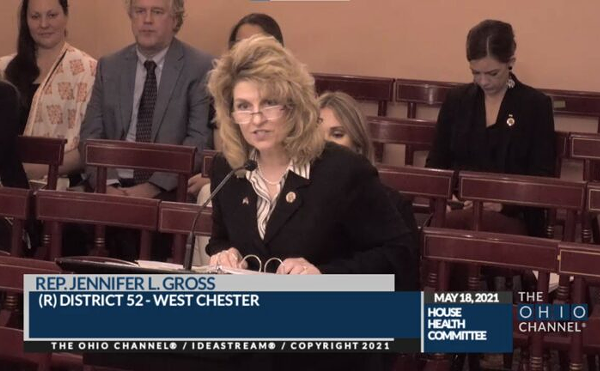Ohio Republican U.S. Sen. J.D. Vance wants to see a new, more aggressive approach to antitrust enforcement. That stance puts him at odds with many in his own party and at least somewhat in line with Biden administration officials and prominent liberal lawmakers like U.S. Sen. Elizabeth Warren, D-MA.
Break them up?
At an event called RemedyFest hosted by Bloomberg and the startup accelerator Y combinator, Vance argued regulators need to consider more than consumer prices when analyzing mergers and acquisitions. Since the 1970s, this consumer welfare standard has been the dominant approach to antitrust enforcement.
“There’s sort of something fundamentally missing from that analysis,” Vance explained. “There are questions of consumer choice, there are questions of consumer quality.”
It’s a more recent skepticism of business consolidation favored by Federal Trade Commission Chairwoman Lina Khan, who Vance praised as one of the only Biden administration officials “doing a pretty good job.” And it’s a view that has gained steam as tech companies have grown into behemoths by acquiring companies before they can grow into competitors.
Vance recalled seeing fast-growing ad tech companies when he worked in venture capital. In any other sector, he explained, a firm that jumped from $3 million a year in revenue projection to $60 million a year looks like a good investment. But in that field “it was sort of universally acknowledged that these were dead companies.”
“The thing that was wrong with their business wasn’t their business,” Vance argued. “It’s that they existed in a fundamentally noncompetitive market. There was no way that these companies would be able to acquire significant market share from where they were, because the market was already dominated by such powerful incumbents.”
He argued that kind of dominance stifles competition, and by extension, curbs innovation and suppresses wages.
On social media, Vance recently called for breaking up Google and he described some of the pushback he heard. The argument, he explained, is that Google or Facebook are big because of network effects — essentially, size carries a kind of momentum. As a platform attracts more users, it becomes increasingly attractive to yet more users. And while Vance acknowledged that’s a reasonable argument, he argued it has its limits.
“Does Google need to have YouTube?” he asked, noting the same could be said about Meta’s properties, Facebook and Instagram.
“We want to ensure that new entrants can change these things up, and you want to promote as much competition as possible and you actually want to separate all of these market verticals as much as possible,” Vance said. “That’s where I think antitrust is probably the most useful way to think about a solution.”
Political influence
Vance shares support for a more aggressive antitrust posture with U.S. senators Josh Hawley, R-MO, and Elizabeth Warren, D-MA. And just as those lawmakers represent different ends of the political spectrum, Vance cautioned, their motivations and expectations differ as well.
In addition to market concerns, there’s a political dimension to Vance’s skepticism of Big Tech.
“Google and Facebook have really distorted our political process,” he insisted. Because many Americans access information through their platforms, tech firms can exert significant influence over voters’ decision-making. His post calling for Google’s break up, for instance, was resharing a post suggesting the company was “rigging” the 2024 election by returning left-leaning search results.
He noted a chunk of voters make up their minds in the final few weeks before an election, and as a hypothetical, offered a voter searching for information about how Biden’s age affects his competence.
“There are a million different answers you could get to that question,” Vance argued, “and whether Google, I think, provides a fundamentally unbiased search result is, I think, at the heart of American democracy.”
He suggested Google’s results can take “what I believe is a very live political issue, and completely hide it from them.”
If that sounds familiar, it’s a version of the argument Vance and other Republicans have leveled against tech companies over Hunter Biden’s laptop. In the weeks leading up to the 2020 election, intelligence officials warned that the laptop looked a lot like a Russian intelligence operation meant to interfere with the election. In turn, Republicans howled that tech companies removing posts about the story themselves amounted to election interference.
As it turns out, the laptop was genuine. But after the indictment of a former FBI informant accused of planting information from Russian intelligence about a bribery scheme involving the Biden family, the officials who urged caution in 2020 are claiming some measure of vindication.
Without naming the laptop, Vance argued responding to Big Tech’s influence on the flow of information is a point on which he and lawmakers on the left may disagree.
“My bias on these questions is fundamentally in the direction of openness,” Vance said, “of providing more information, not providing less information.”
He added later that, “We really have to be careful that we don’t take the insight 'Google’s bad for American democracy' and then try to censor more,” before allowing, “I don’t see any reason to think that’s the sort of direction that (FTC) Chair Khan is going.”
This story was originally published by the Ohio Captial Journal and republished here with permission.





